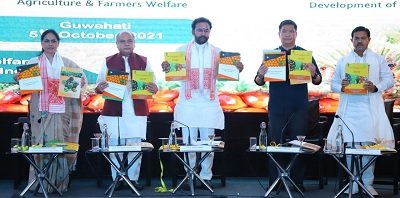FSII recognises advent of Bt cotton in India
GM technology goes beyond Bt Cotton and has larger application in sustainable agriculture
Federation of Seed Industry of India (FSII) is celebrating the power of technology like Bt Cotton in making India the world’s leading producer. World Cotton Day is celebrated on October 7 every year.
Ram Kaundinya, Director General, FSII said, “Many factors influence the outbreaks of pests. Pink Ball Worms (PBW) existed and was controlled with chemical pesticides and other practices even before Bt Cotton came into the country. Many measures related to ginning of cotton, movement of cotton seed for oil extraction, transportation of cotton from infected areas to other areas, destruction of plant residues from cotton fields are needed to control the spread of an infestation.”
Dr Shivendra Bajaj, Executive Director, FSII said, “Bt cotton controlled all the bollworms very effectively and continues to do so. Pink Bollworm outbreak could be a result of very good control of other bollworms, but it is also because we have not introduced more advanced upgrades of Bt technology, thanks to the activism and regulatory logjam. The needs of the farmers have been neglected. In many states implementation of a proper package of agronomic practices have provided good relief from PBW. GM technology goes beyond Bt Cotton and Herbicide Tolerant cotton. It has many other applications like water use efficiency that reduces the use of water in cultivating crops, nitrogen use efficiency that reduces the use of nitrogenous fertilisers in crops, heat tolerance that helps crops to grow under higher temperatures, improving the nutritional profile of crops, etc. Many of these applications help us to preserve natural resources and improve the nutrition of the poorer sections of society. Rejecting all of them under the umbrella of GM crops is completely irrational and dangerous.”
Dr Bajaj, “We must realise that no technology gives permanent and complete solutions. For a technology to last 15-20 years without up-gradation and still give good results is a major achievement. Instead of criticising the technology, we should advocate for the up-gradation and integrated management of the technology. We need a basket of technologies including organic, crop protection chemicals, fertilisers, biotechnology interventions and breeding improvements for the farmers to have the awareness and freedom to choose the best and long-lasting solutions.”
GM technology goes beyond Bt Cotton and














